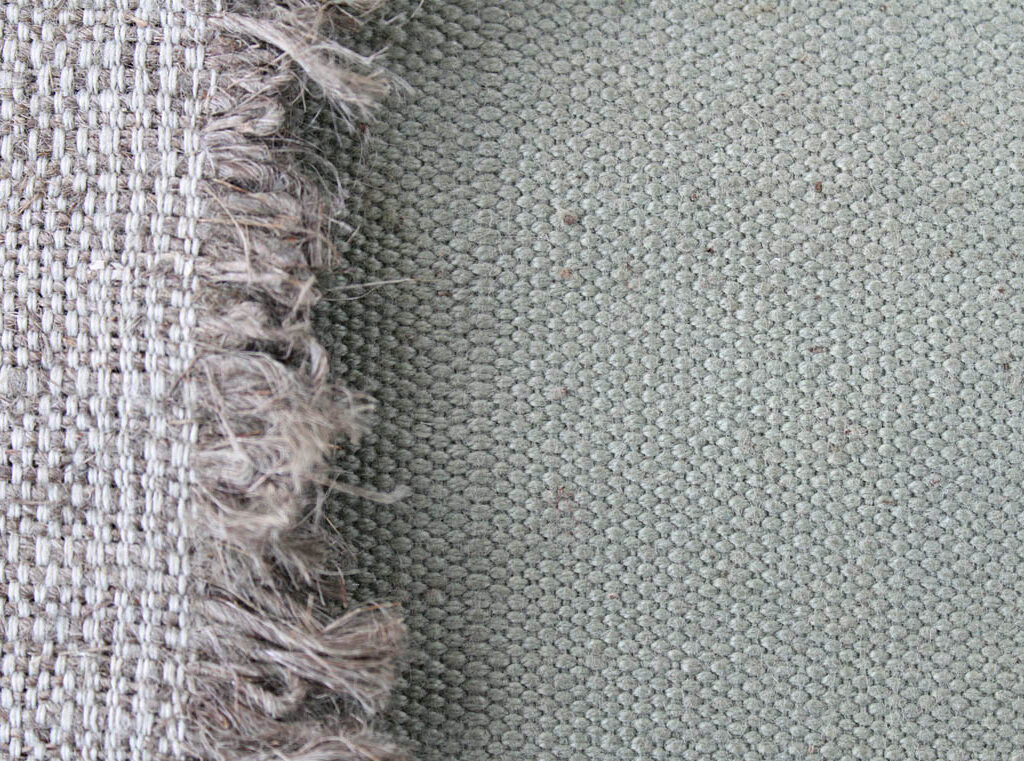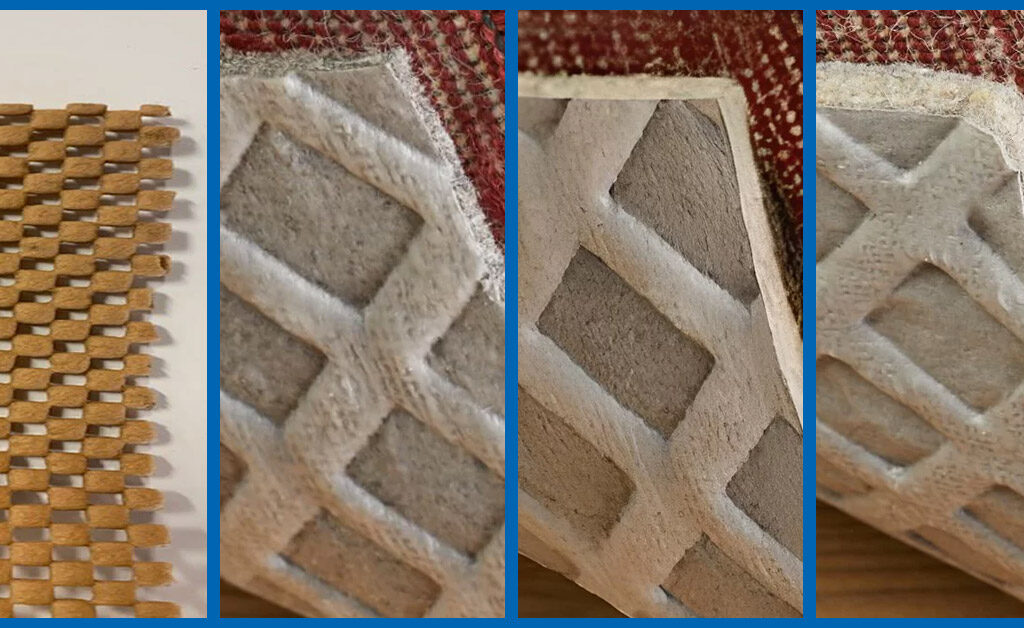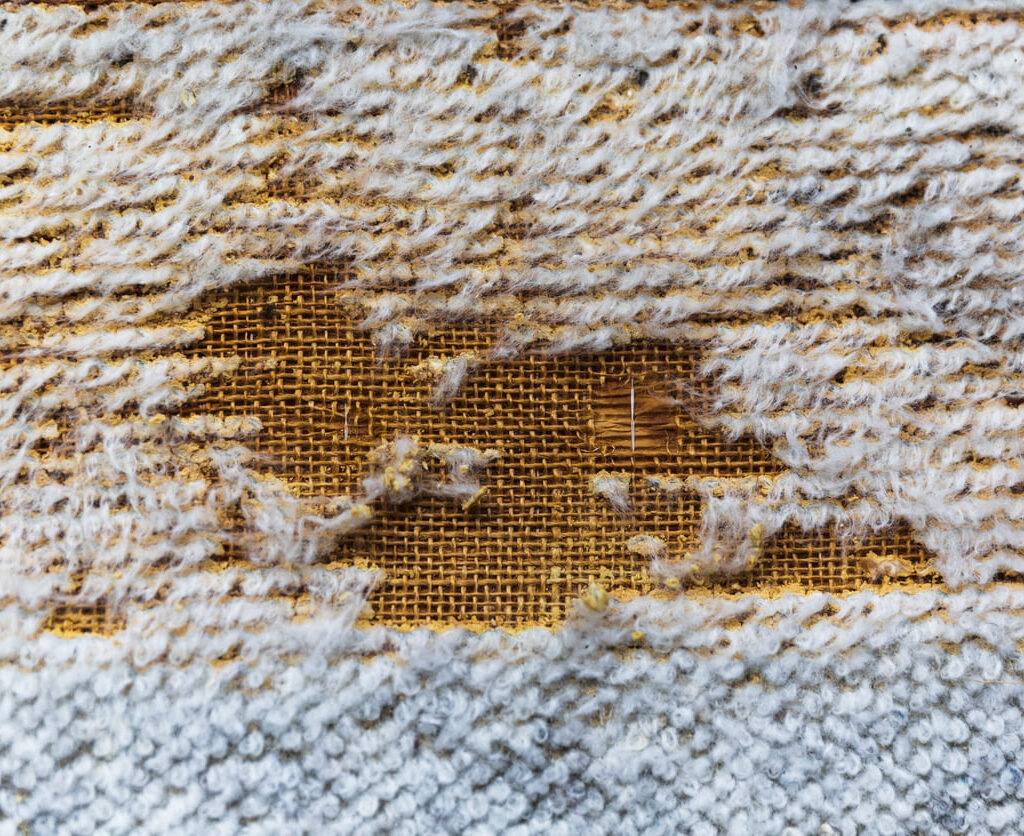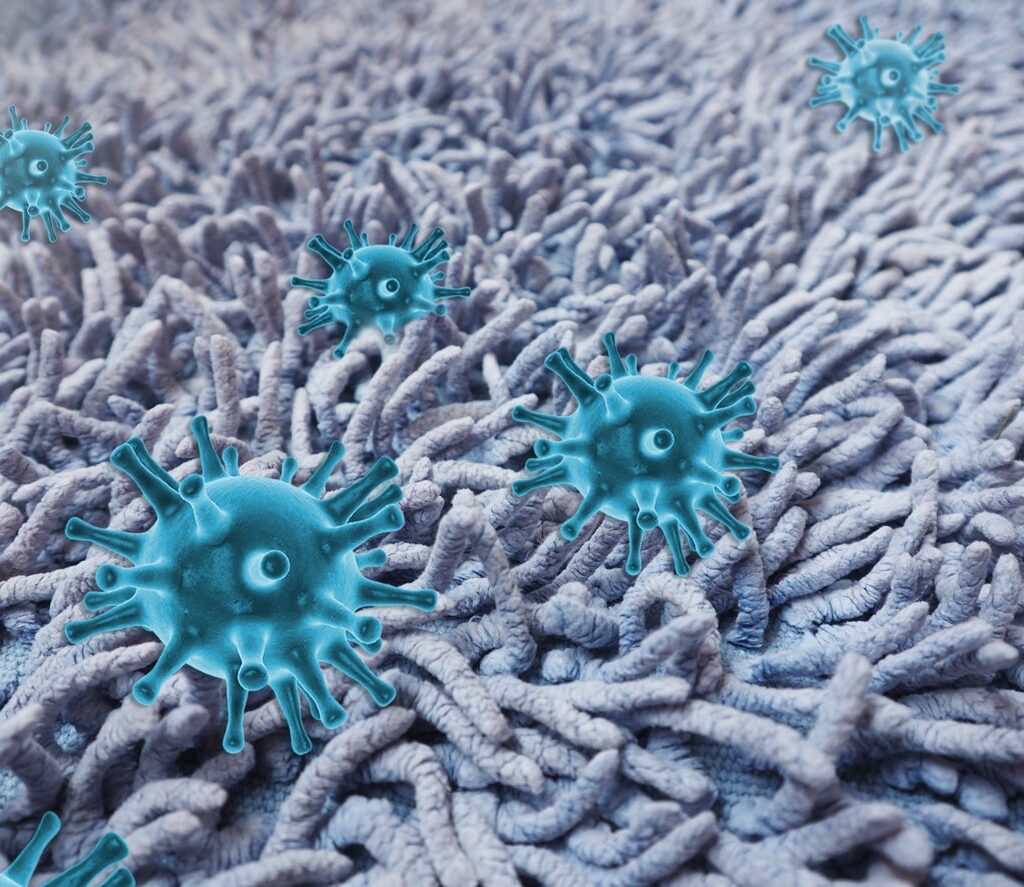Rugs can take a beating, especially in high-traffic areas or homes with pets. Frayed edges, holes, and general wear can make even the nicest rug look worn out. The good news is that you can repair most rug damage with the right tools and techniques. Whether you’re dealing with pet damage near doorways or everyday wear, this guide will show you the best methods for fixing your rug like a pro.
Fixing Frayed Rug Edges
Frayed edges are one of the most common rug issues. If left unattended, they can lead to further unravelling. Here are three ways to fix them:
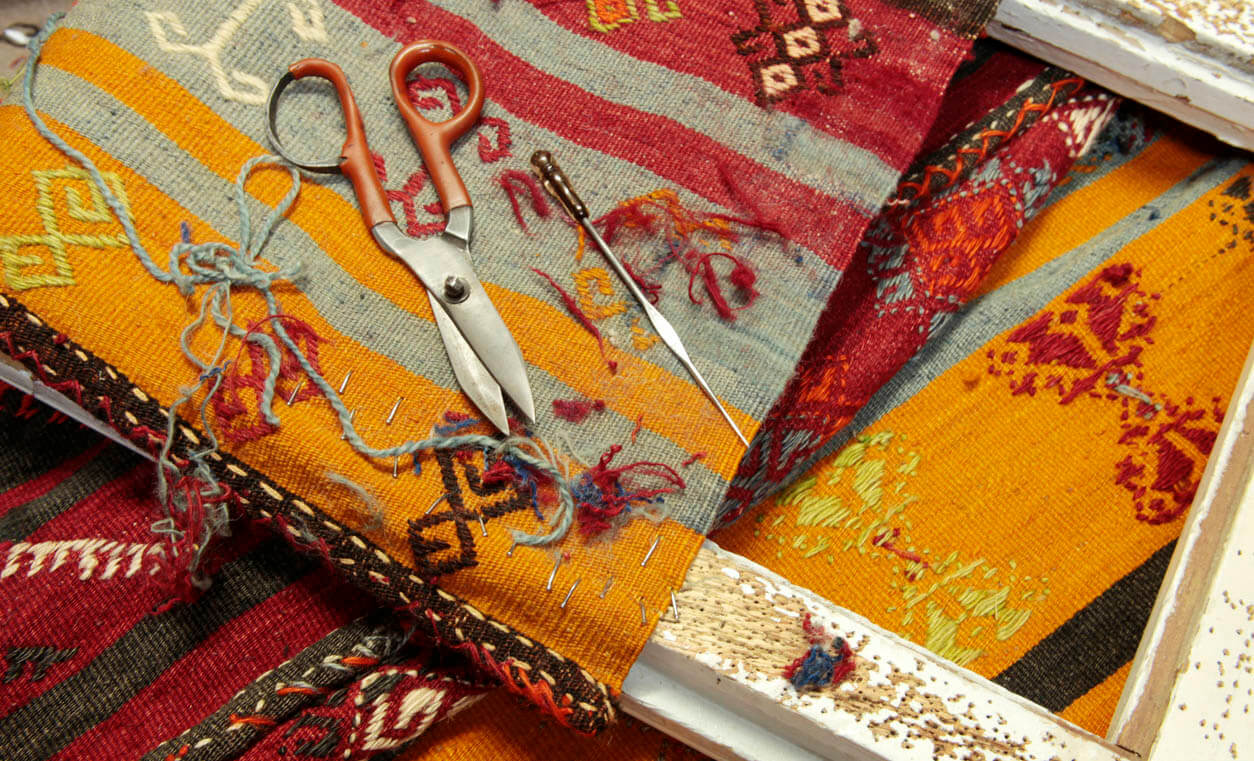
Method 1: Stitching by Hand
- Trim any loose threads with sharp scissors.
- Use a heavy-duty needle and upholstery thread that matches the rug.
- Sew a tight overcast stitch along the edge to reinforce it.
- Knot the thread securely to prevent further fraying.
Method 2: Using Binding Tape
- Cut a piece of binding tape slightly longer than the frayed area.
- Press it onto the edge, ensuring a firm bond.
- For added durability, sew along the tape’s edge.
Method 3: Professional Binding or Serging
If the fraying is extensive, professional binding or serging (a process that wraps the edges in a continuous thread) will provide a long-lasting solution.
What About Rug Fringes? How Do I Fix Them?
Rug fringe replacement helps restore a rug’s appearance without a full replacement. For minor fraying, trim uneven strands and use fabric adhesive for reinforcement. If the fringe is missing, attach a matching one by sewing or gluing it in place. For antique or valuable rugs, professional services can seamlessly replace the fringe while preserving authenticity.
Repairing Holes in Rugs
Holes in a rug, whether from heavy wear or pet damage, can often be patched or rewoven. The right repair approach varies based on the hole’s size and extent of damage. Here are some you can consider:
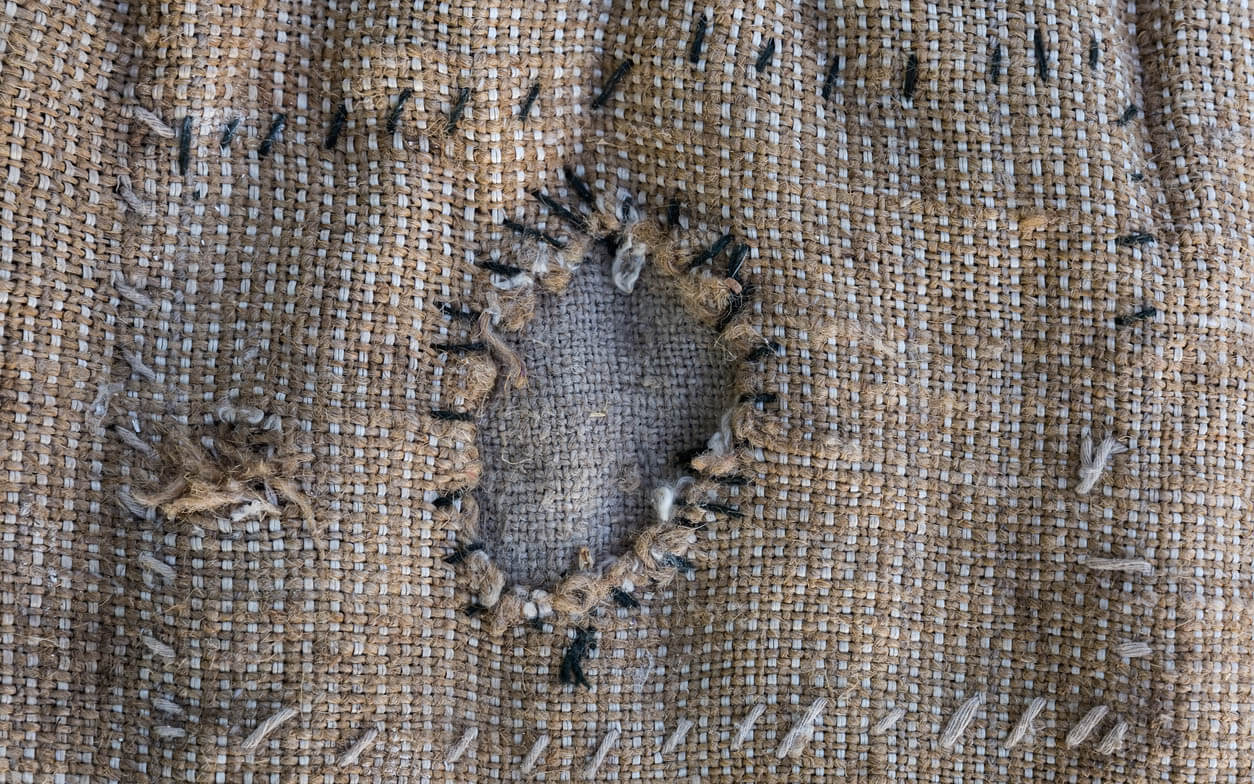
| Repair Method | Best For | Process |
| Rug Patch for Small Holes | Small punctures or worn spots | Trim the hole, cut a matching patch, glue or stitch it in place. |
| Weaving for Large Holes | Large missing sections | Use a latch hook or rug needle to weave matching fibres into the backing. |
| Professional Restoration | Intricate or antique rugs | Experts will reweave and match patterns for seamless results. |
For minor holes, a DIY rug patch may work. However, services from carpet cleaning and repair professionals are recommended for significant damage to maintain the rug’s structure and design. If the rug is valuable or fixing the hole in your rug seems overwhelming, rug repair experts can help bring it back to its original condition.
Addressing Wear & Tear in High-Traffic Areas
High-traffic areas often show thinning fibres, fading, or general wear. Unlike holes or fraying, wear happens gradually and requires proactive maintenance.
One effective method for reinforcing weak areas is applying a fabric stabilizer to strengthen the backing. If fibres have already thinned out, a latch hook technique can be used to add new fibres and restore the rug’s density.
For faded rugs, re-dyeing is a practical option. Testing the dye on a small area first is essential to avoid uneven coloring. Using a sponge or brush, you can gradually apply dye and let it dry before placing the rug back in use.
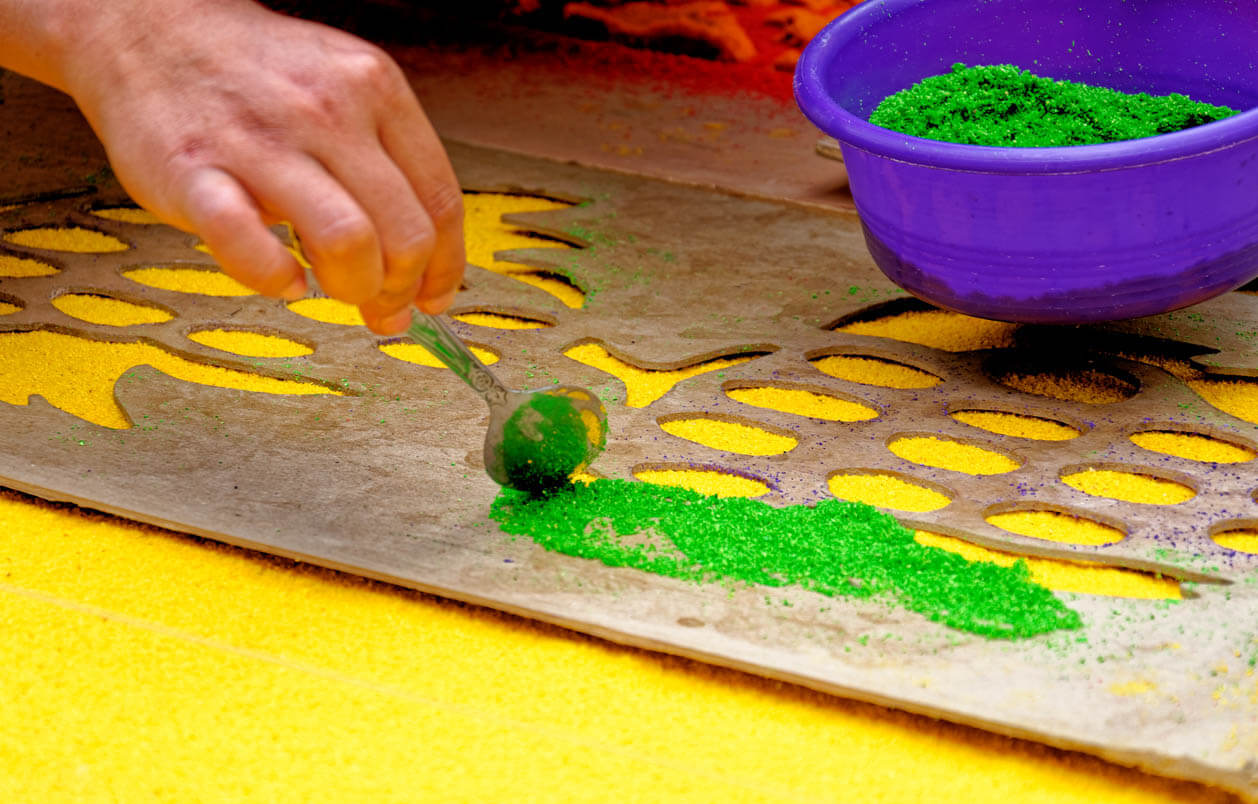
Sometimes, the best way to improve the rug’s appearance is simple grooming and trimming. Long or frayed fibers can be trimmed for a more even surface, and a fabric brush can help fluff up compressed areas, making the rug look newer.
DIY vs. Professional Rug Repair: Which One Is Right for You?
Some rug repairs can be handled at home, but others require professional expertise to avoid long-term damage. While DIY fixes might save money upfront, improper techniques can weaken rug fibres, cause dye bleeding, or lead to further deterioration. Professional carpet cleaning and repair services offer specialized techniques that preserve the rug’s structure and extend its lifespan.
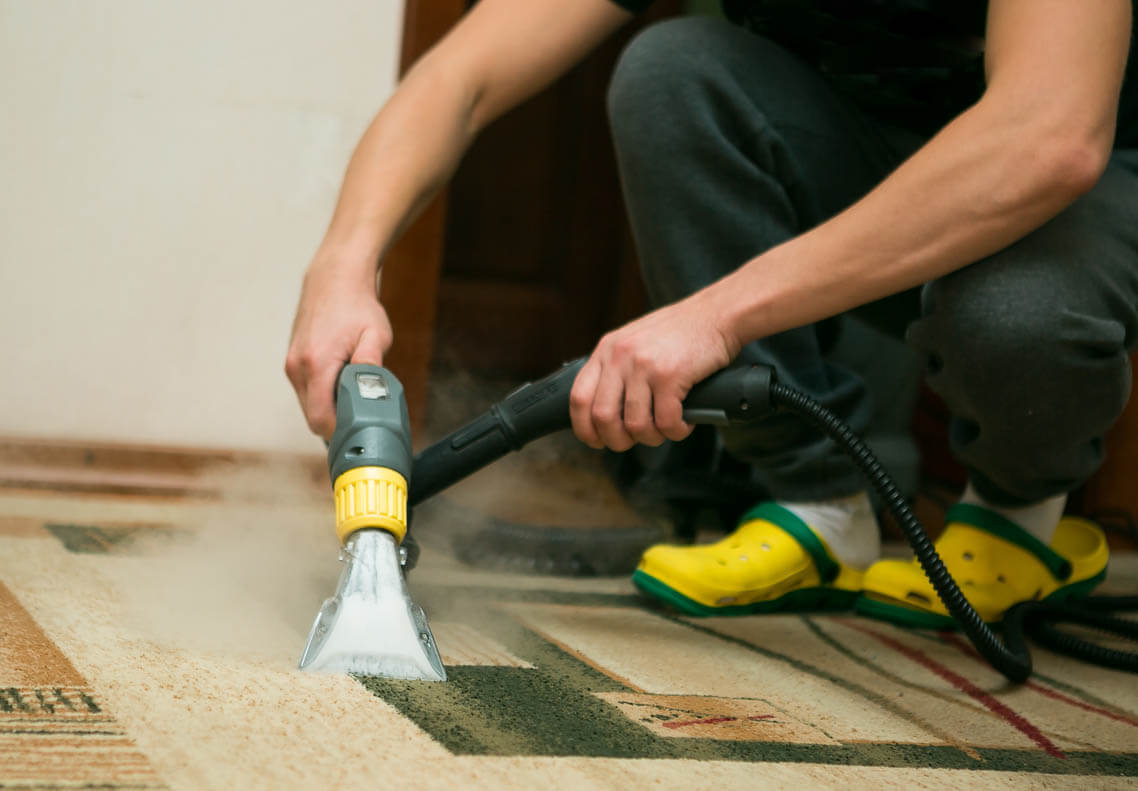
| Repair Type | DIY | Professional |
| Frayed edges | Hand-stitching or binding tape can work for minor fraying. | Serging or binding by experts ensures durability and prevents further unravelling. |
| Small holes or tears | Rug patching is possible but may not blend seamlessly. | Reknotting and fibre reconstruction restore the rug’s original texture and design.1 |
| Large holes or missing sections | Difficult to match fibres and weave properly. | Experts use advanced techniques to reweave and restore patterns. |
| Deep stains or discoloration | Spot cleaning may work for surface stains but risks dye damage. | Wet cleaning and low-moisture surface cleaning remove deep-set stains while preserving durability.2 |
| Structural damage (warping, unravelling) | Hard to fix without professional tools. | Restoration methods reinforce the rug’s foundation and prevent further damage. |
| Allergen and mite removal | Regular vacuuming helps but doesn’t eliminate allergens. | Professional wet cleaning significantly reduces house dust mites and improves indoor air quality.3 |
| Antique or valuable rugs | DIY attempts may lower value or cause irreversible damage. | Preservation techniques protect delicate fibres and maintain the rug’s worth.4 |
For minor repairs, DIY methods may work, but professional services provide superior restoration, prevent long-term fibre damage, and enhance the rug’s longevity. If your rug has extensive wear, structural issues, or sentimental value, a professional approach ensures the best results.
How We Can Help
At Love Your Rug, we specialize in expert carpet cleaning and repair, offering deep cleaning and restoration for all types of rugs. Our team uses advanced techniques like reknotting, fiber reconstruction, and deep cleaning to bring rugs back to their best condition. Whether dealing with frayed rug edges, holes, stains, or structural wear, we handle each rug with care. Our safe cleaning methods remove dirt and allergens while protecting delicate fibers, helping rugs maintain their beauty and durability.
While DIY maintenance is great for regular upkeep, some repairs require expert attention. Professional restoration helps rugs last longer and keeps intricate details intact. Love Your Rug provides high-quality repairs and deep cleaning tailored to each rug’s needs. Contact us today for a free quote and let us restore your rug’s beauty.
References
- Peter F. Stone et al. “Oriental rug repair : step-by-step reknotting and reconstruction, care and preservation.” (2010).
- Á. Zsednai et al. “Carpet cleaning and maintenance.” (2018): 419-442. https://doi.org/10.1016/B978-0-08-101131-7.00016-2.
- R. Boer et al. “The control of house dust mite allergens in rugs.” The Journal of Allergy and Clinical Immunology, 86 (1990): 808-814. https://doi.org/10.1016/S0091-6749(05)80187-3.
- R. Behar et al. “The cleaning and care of Oriental rugs.” , 1 (1978): 352-354.

